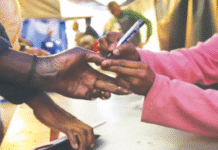TBS

For over a year, “reform” has been Bangladesh’s buzzword. Unlike traditional caretaker governments, the interim government that came to power after Sheikh Hasina’s ouster was expected to do more than just holding elections — strengthen institutions and chart a clear governance path for the next elected government.
Nearly 13 months on, however, frustration is mounting; the much-anticipated reform drive appears stalled. And this perception is shared not only by ordinary citizens, but also by reform commission chiefs and members, as well as senior civil society figures.
At a recent dialogue organised by the Citizens’ Platform for SDGs, Bangladesh, where a new initiative titled ‘Bangladesh Reform Watch’ was launched, reform commission leaders and members said their work has largely been limited to submitting proposals, with little sign of implementation.
We urged the government, through our commission, to consult with editors in order to establish ethical standards in the media by introducing a code of conduct. For that to happen, the government should have engaged with editors. They probably met with editors once, but broader consultation never took place.
Chairing the event, Centre for Policy Dialogue (CPD) Chairman Rehman Sobhan questioned the very direction of the reform discourse.
“If you had any reforms that you wish to implement, presumably this should have been articulated six months ago. If reforms are not completed, the election may be in danger. And some people may not participate in it. But what is not clear is which reforms must be carried out,” he said.
At the event, Dr Tofail Ahmed, chairman of the Local Government Reform Commission, said, “What was in place earlier is still there. Local government, media, health, and women’s commissions are in the weakest state. Those who worked hard in the hope of reforms are now disheartened because nothing has moved beyond report writing.”
Meanwhile, Labour Reform Commission Chairman Syed Sultan Uddin Ahmed added, “We didn’t expect reforms overnight, but at least some activities should have begun. That hasn’t happened, which is deeply frustrating.”
For a better understanding, TBS spoke to a few other reform commission members and chiefs.
According to Media Reform Commission head Kamal Ahmed, the relevant ministries are at the helm of implementing the reforms. However, as far as media reform is concerned, there has not been much progress, and the commission members are mostly aware only of what is being said publicly. “Even privately, what they [government bodies] are saying is not very hopeful,” Ahmed said.
He went on to say that a few months ago, the information adviser said that they would start working on the implementation of 11–12 issues very soon, but none of these have come to fruition yet.
“Among these issues, the number one priority was the Journalist Protection Act. However, it has not yet been made available for public consultation with stakeholders. It should have been published on their website so stakeholders could provide feedback after reviewing the draft of the act,” he said.
He also addressed complaints that editors were not consulted for media reform. “Before preparing our report, we consulted editors in various forums. We also met with NOAB, journalists’ unions, and all other recognised representative bodies. Even outside Dhaka, we spoke with regional journalists and editors.
“We urged the government, through our commission, to consult with editors in order to establish ethical standards in the media by introducing a code of conduct. For that to happen, the government should have engaged with editors. They probably met with editors once, but broader consultation never took place.”
But while the recommendations from the Media Reform Commission largely received positive feedback from most quarters, the Women’s Affairs Reform Commission faced significant backlash and controversy.
Proposals such as equal inheritance under a uniform family law, recognition of sex workers as labourers, criminalising marital rape, and banning polygamy were criticised for conflicting with religious and constitutional norms.
Constitutional, governance reform efforts stall as political parties fail to reach consensus
Expanding parliamentary seats for women also raised concerns. Conservative groups, including Hefazat-e-Islam and Jamaat-e-Islami, labelled the reforms “anti-Quran,” and unsurprisingly, the commission’s suggestions have not made any significant progress so far.
Speaking to TBS, Ferdousi Sultana, one of the members of the Women’s Affairs Reform Commission, expressed regret that, in terms of concrete advancement, all they had heard from the ministry was that among the 433 recommendations proposed, the government had shortlisted a few, which are now being monitored and analysed for potential implementation.
Beyond what has been published in gazettes, she said, there is little awareness of any progress. She also noted that the lack of discussion was not limited to controversies around this commission; in general, the five commissions formed afterwards received very little public or governmental attention.
“Overall, there were high expectations for this commission. The government initially showed positive intent, but what has happened in reality so far does not inspire much optimism,” she said.
Sultana also criticised the composition of the reform commissions, noting that despite women making up 51% of the population, their representation, as well as that of other minority groups in these commissions, has been quite disappointing.
Badiul Alam Majumdar, head of the Election Reform Commission and a member of the National Consensus Commission, said that implementing reforms is crucial to making the upcoming elections a success.
He emphasised that political parties must reach a consensus within two weeks, noting that there can be no further extension for the National Consensus Commission. “Reforms will either take place during this time span or not at all.”
He added that much of the responsibility for reform progress lies with the political parties. “The government and we ourselves are just facilitators; much depends on the political parties, who are the key stakeholders. If they cannot reach a consensus, little progress can be made,” he said.
Majumdar also acknowledged the lack of representation from women and other diverse groups, which may hinder proper progress. “It is indeed unfortunate that there were no women among the first six commission leaders that made up the National Consensus Commission in February, and that their representation was low throughout all commissions. I personally brought up this matter at least five times in the commission meetings,” he further said.
However, while there has been pessimism regarding reform progress, Chief Adviser’s Press Secretary Shafiqul Alam does not share this view.
Speaking to TBS, he outlined that a total of 11 reform commissions were formed. Discussions are already underway with political parties regarding the changes required for constitutional reform.
Beyond that, among the remaining 10 commissions, a total of 367 actionable recommendations were identified — 167 of them routine in nature and 200 proper reforms. So far, 48 of these reforms have been implemented, while work on the rest is ongoing.
“Therefore, the claim that reforms were merely proposed but not implemented is completely false. Every week, the Cabinet Division provides updates on the progress. In fact, at every Cabinet meeting, before moving on to other routine discussions, the progress of the reforms is reviewed,” Alam said.
He further added that in terms of constitutional reform as well, many issues in the first phase have already been agreed upon. In the second phase, which includes crucial reforms, all political parties have reached consensus on 17 out of 19 issues. There may be one or two notes of dissent. The two remaining issues are related to the proportional representation of the Upper House and the formation of the caretaker government. Further discussions on these matters are still pending.
He also noted that beyond these, every ministry has also undertaken numerous reforms on its own initiative. For example, the reforms in Hajj management were carried out entirely through the ministry’s own efforts. In many areas, mobile applications have been developed. Various citizen services have also been introduced independently across different sectors.
“In labour reforms, significant changes have been made in collaboration with the International Labour Organization (ILO). The central bank, too, has implemented a series of reforms without relying on any reform commission,” he added.
Source : https://www.tbsnews.net/features/panorama/whither-are-reforms-elections-nearing-bangladeshs-governance-overhaul-remains









